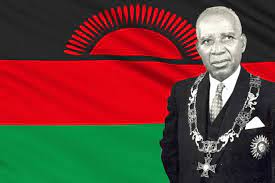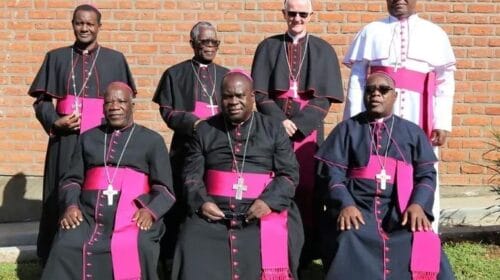Nationalism And The Rupture Of Nigeria – Re: Lower Niger Bloc By Ndidi Uwechue
From Wikipedia we learn that there are about sixteen different types of nationalism. This article is about good nationalism, the kind that is shaping up in the Lower Niger Bloc. This Lower Niger Bloc is comprised of the South-East and South-South together. The name “Lower Niger” is a temporary one for that Bloc, being used for administrative purposes in the so-far very successful road to self-determination for each ethnic nationality within the Bloc, being spearheaded by the Lower Niger Congress. “Lower Niger” comes from the 1885 ethnolinguistic map of the region, and satisfies the first fundamental of the United Nations instrument on the right to Self-determination.
Here is the background to the new nationalism in the Lower Niger Bloc. For many years now the call to Restructure Nigeria into either a true Federation or a Confederation where ethnic nationalities would have self-determination had been getting louder. The Buhari and Osinbajo government had been elected in 2015 mainly because of their promise to bring change and Restructuring, with their party’s Constitution stating, “To promote true federalism in the Federal Republic of Nigeria.” And their Manifesto, “…implement efficient public financial management strategies and ensure true federalism”. Needless to say, once in office President Buhari refused Restructuring, and ignored all the appeals to do so, even those coming from elderly statesmen despite being told that No Restructuring would mean No Nigeria.
Nigeria therefore now finds itself on the threshold of the end of the Union. It seems to be on its way to forming new countries following natural lines. The Arewa Bloc (core North) has been the first to make moves to leave the Union when in year 2000 twelve neighbouring States began to use their right to self-determination and took up Sharia, breaking the conditions for being a Union, set prior to Independence in 1960. Other natural Blocs are the Oodua Bloc, the Middle Belt Bloc and the aforementioned Lower Niger Bloc.
The Lower Niger Bloc consists of different ethnic nationalities that for millennia coexisted peacefully, and that if they want can each be nations of their own. Due to the centuries of intermarriage and interrelations, anthropologists put them into just six broad ethnolinguistic groups that can together be a country of some 70 million people. Being the 21st century now, the world is no longer what it was in the time of the ancestors prior to European interference when numerous small kingdom states existed. Today, presenting as a country that is substantial and robust, plus viable without the need of foreign aid, or having to be massively dependent on things that can fluctuate such as tourism, is essential. The Lower Niger Bloc as a country would be able to hold its own on the global stage and would have infinite possibilities. Furthermore, as a country each ethnic nationality would have a wider economic field to play in, very important now that the world is moving away from fossil fuels and new ways will be needed to build economies. Plus, being one country together improves and strengthens security, a key aspect for any nation.
The basis of the Lower Niger Bloc comes from the work by the Lower Niger Congress (LNC) leading up to, and including the Solemn Assembly of the peoples of the Lower Niger in Port Harcourt on April 27, 2015 where the map of the Bloc was adopted and very importantly, a mandate given for making a “Charter of Relationships” that spells out the type of relationships and conditions that the ethnic nationalities will agree to in coming together as a prospective Federation, where each ethnic nationality has sovereignty and self-determination in their ancestral land. The “Charter of Relationships” would also address the historical hurts and suspicions surrounding events relating to the Civil War. It is important to move on, looking to the future and not be bound down to the past especially in Africa that has been left behind so needs to catch up, and not allow the sci-tech gap to widen because of tribalism which consumes energy, plus prevents cooperative approaches that would bring mutual benefits.
It is here that young people especially, plus older people of good faith from the Lower Niger Bloc, as nationalists, have already begun the pleasant work of nation-building. Being that there are several ethnic nationalities in the Bloc, ethnic nationalism like the Yoruba can use in their Oodua Nation is not appropriate here, but CIVIC NATIONALISM, the type that is used in multi-ethnic countries like the USA, Canada, and Australia, is the way into the future for the Lower Niger Bloc. Unlike ethnic nationalism that defines a nation in terms of ethnicity, civic nationalism is based on certain ideals and values that all the ethnic nationalities of a country key into, and uphold. National identity comes from a shared vision of what the country is, and is going to keep on being. In founding America, the Declaration of Independence includes:
”We hold these truths to be self-evident, that all men are created equal, that they are endowed by their Creator with certain unalienable rights, that among these are Life, Liberty, and the Pursuit of Happiness.”
Building up the Lower Niger Bloc is ongoing and the peoples have not yet formulated the ideals and values that will make up the national identity, but for now it is being guided by the American example.
Hindrances to nation-building in the Lower Niger Bloc come from those who for personal gain and fame, push an ethnic supremacist agenda that promotes a militant form of “my ethnic nationality only is best”, which other ethnic nationalities find offensive and are disgusted by. Individuals or groups promoting hate and disdain for other ethnic nationalities, have been known to use insults, threats and even violence. They have been able to get away with it because policing and law enforcement is quite poor in Nigeria. In Britain and other Western countries much of what they do would be called “racist”, and not be tolerated. Those in the Lower Niger Bloc who have been intimidated, exasperated, or hurt by any ethnic supremacist incidents, should take heart that such conduct will not be condoned in any new Lower Niger Bloc nation, but any form of hate crime will be swiftly and effectively dealt with, as is done in any civilised country.
Self-determination for each of the ethnic nationalities in the Lower Niger Bloc allows for the peoples to control their present and their future, by properly securing themselves, their property and their lands from trespassers, aggressors and killers. Plus, with self-determination ethnic nationalities can decide what happens to their natural resources and assets, and plan a future that they and their children can enjoy. The Lower Niger Congress being the self-determination organisation for the Lower Niger Bloc, has worked to create alliances and friendships among the ethnic nationalities in the Bloc, and beyond. In today’s world, alliances are vital because they enhance capabilities and promote survival and security. While the Lower Niger Congress is working on the political front, the ordinary peoples of the Lower Niger Bloc can be involved in nation-building using the principles of civic nationalism which makes it so very possible for a multitude of different ethnic nationalities to form a community and a country not defined by ethnicity, but like the great country that America is, nationhood is defined by shared values and ideals. This is a fun and exciting journey to be making, and young people of the Lower Niger Bloc should get thoroughly busy turning that Bloc into the “Most prosperous and peaceful country in Africa”!





